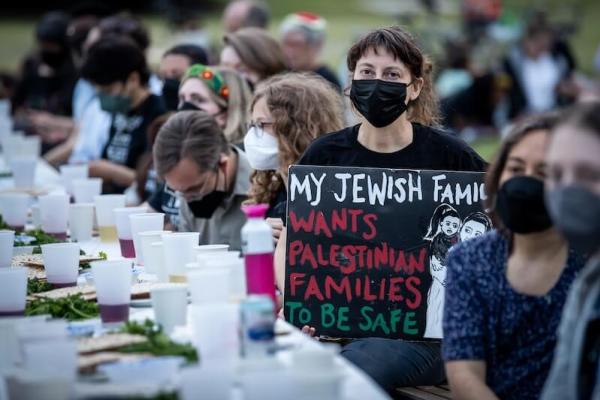“I can’t breathe!”
Those three words are etched into my consciousness. On July 17, 2014, Eric Garner died of suffocation in a NYPD officer’s illegal chokehold. One year later, the family accepted a pre-trial settlement and to date, no action was taken against the perpetrating officer caught on video circulated and gone viral on social media.
On this anniversary, I wrestle with what we have learned. Has anything changed since Eric Garner’s death?
To some extent, yes — and for the worse. Tensions have worsened in all directions since 2016 election. Along with black and brown bodies, we learned that immigrants and the non-Christian religious are becoming expendable targets in an increasingly supremacist environment. The current GOP-controlled legislature of predominately wealthy white men refutes, daily, that poor, working class lives matter. Working or unemployed people of color like Eric Garner disproportionately face harsh socioeconomic disparities, while legislative policies threaten to dismantle affordable health care, Medicare, and other social service safety nets.
We learned that judicial systems across America will uphold the catch-all phrase “I feared for my life” as an excuse to remove fault from officers in police-involved shootings — nearly all, in fact, since the 2014 shooting of unarmed Michael Brown in Ferguson. The oft-repeated pattern is all too similar: wrongful death, civic out-of-court settlements, and little recourse to sentence law enforcement.
We learned that giving these officers civic remedy of exoneration, paid leave, or payment to resign is easier than tackling police unions.
We also learned that religion and politics have become (even) strange(r) bedfellows in the wide halls of Capitol Hill, where alt-right ideology and conservative evangelicalism blend theological rationale with political agenda in efforts to defund Planned Parenthood and undermine civil protections for LGBTQ rights. We learned the prevailing justice stance of the American church is lukewarm at best — overwhelmingly divided, and complicit when silent.
But we also learned something powerful. We learned that some courageously vocal inter-religious leaders will prophetically critique the hypocrisy of the mantra to “Make America Great Again.” We learned that social media is a powerful tool to inform, to mobilize, and to speak against injustice — especially now, given the current president’s obsession with daily tweeting his version of facts.
And notwithstanding the challenges since the death of Eric Garner, I am inspired by the inexhaustible passion in a younger millennial activist generation that refuses to be silenced. Amid the human condition, as black and brown lives are violently cut short and identities marginalized, we learned we cannot forget the names raised up to keep collective memories attuned. We also learned to recognize an indomitable spirit of hope in each protest, prayer, and freedom march.
In order to grow solidarity and intergenerational support of faith and secular activists’ work, we will need to bridge religious and cultural contexts toward collective public witness. In a divisive society that seeks to splinter margined voices, we learned, and are still learning, to prioritize intersectional concerns, to achieve inclusive commonweal benefits, rather than exclusively privilege a few.
Finally, as people of faith, we are called to enact a public theology and praxis guided by the prophetic tradition of Jeremiah 29:7 — to seek the welfare of the city. For in it, we will find our welfare. In spite of our grief and our anger at many social evils, we are compelled to push forward and embody God’s eternal reality in which we are interconnected.
What we’ve learned three years after Eric Garner’s death is that we can’t give up on God’s mandate for justice, incarnated in the gospel’s good news. If we trust and believe that selfish agendas of special interests will not prevail, we are compelled instead to believe that love will conquer hate.
Today, what we learn from Eric Garner’s memory is that our human right to life with dignity is still worth fighting for. Too much is at stake.
Got something to say about what you're reading? We value your feedback!







